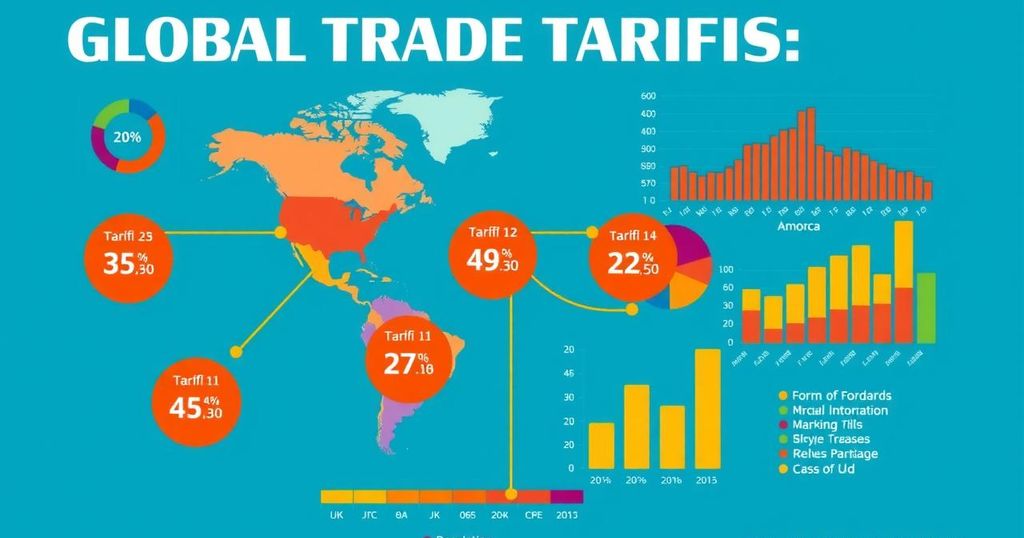The article discusses the complexities of corruption in Ghana, outlining recent government efforts under John Mahama while emphasizing the historical role of grassroots movements in combating corruption. It highlights the disproportionate impact on poorer communities, critiques current anti-corruption measures, and calls for a collaborative approach that includes active citizen participation.
The recent government led by John Mahama in Ghana has taken notable initial steps to tackle corruption. On February 12, 2025, Mahama’s special prosecutor declared a former finance minister a “wanted fugitive” for evading questioning related to alleged financial irregularities. This action reflected familiar themes from past campaigns, indicating that corruption was primarily attributed to the previous party in power, the New Patriotic Party, and emphasizing that misconduct by public officials has dire consequences for society.
However, the experience of ordinary Ghanaians reveals a more intricate reality regarding corruption. Over the past thirty years of electoral democracy, both major political parties in Ghana have faced significant scandals. Historical complaints about corruption span both public and private sectors, demonstrating a persistent issue. Grassroots efforts to challenge such abuses have occurred throughout Ghana’s history, predating colonial influences when indigenous societies were subjected to British rule.
My extensive research indicating the necessity for grassroots movements in combating corruption highlights that poorer populations experience the brunt of corrupt practices. If organized, these communities can compel authority figures to take meaningful actions against fraud, as the struggles of ordinary people are often exacerbated by the actions of the elite.
Historically, pre-colonial Ghana, particularly the Asante Empire, faced internal struggles due to the excesses of its rulers, leading to uprisings orchestrated by both elites and commoners. A notable example is Kofi Kakari, who was overthrown for violating societal norms, and later Mensa Bonsu faced rebellion due to his malpractices. The coastal Fante communities established groups called asafo that ensured accountability of chiefs and could remove them if necessary, maintaining this tradition into the colonial era despite colonial governance efforts to suppress such practices.
In the late 20th century, similar resistance surfaced in Ghana, particularly during protests against corruption in the late 1970s and early 1980s, led by Jerry Rawlings. Protesters revived traditional rituals and identified corruption as a systemic problem benefiting the elite while impoverishing the majority. However, Rawlings’s government ultimately moved toward alliances with both local elites and Western finance, which resulted in the dissolution of grassroots movements.
In the current multi-party political landscape, radical critiques of corruption remain, although mainstream parties often focus solely on condemning it, thus perpetuating a culture of control over public institutions for personal enrichment. Critics argue that governmental anti-corruption strategies frequently overlook essential social distinctions, while Transparency International’s metrics primarily reflect foreign investor perspectives.
According to Afrobarometer research from 2019, perceptions of corruption growth diverged significantly along economic lines; 67% of poorer respondents noticed an increase, compared to only 47% of wealthier individuals. This suggests that those most affected by corruption often face immediate and tangible challenges, like bribery, which further undermines their access to essential services.
Despite possessing various laws and institutions aimed at addressing corruption, such as the Commission on Human Rights and Administrative Justice, Ghanaian anti-corruption efforts continue to face criticism due to bureaucratic inefficiency and inadequate political will. Measures, including publicly declaring assets, signify progress, yet activists urge that real change can only materialize with active involvement from everyday citizens who best understand the immediate effects of corruption in their lives.
In summary, the challenges of corruption in Ghana demand not only government initiatives but also active participation from ordinary citizens. The history of resistance against corruption demonstrates both the power and necessity of grassroots movements. As these efforts evolve, they must address systemic issues while holding influential leaders accountable. Ultimately, the effectiveness of anti-corruption strategies hinges upon a collaborative approach that integrates top-down government action with bottom-up public mobilization.
Original Source: theconversation.com




